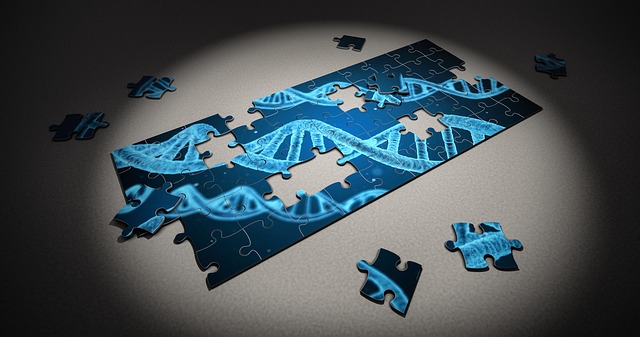Solving the genome puzzle
By Linda Geddes,
The Guardian
| 09. 21. 2018
Evie Walker sits on her mother’s lap, playing a game she never grows tired of: turning her mother’s hand over and over, stroking and examining it. When she takes a break and looks around, it is with the open-mouthed look of curiosity and awe that you see in many infants. Evie’s vocabulary currently consists of a repertoire of squawks and “mmm” sounds. In the past few months, she has begun to stand unaided for short periods – even taking a few steps in her walking frame – progress that fills her parents with immeasurable pride, not to mention hope for the future.
Despite her baby-like demeanour, Evie is eight years old. She has Pura syndrome, a vanishingly rare developmental disorder that didn’t officially exist until four years ago. Developmental disorders affect children’s normal mental or physical development. Before she was diagnosed, all Evie’s parents knew was that she suffered from “global developmental delay”: a vague umbrella term for a set of symptoms with myriad potential causes – some, but not all of them, associated with a heartbreakingly poor prognosis.
Yet thanks...
Related Articles
By Diaa Hadid and Shweta Desai, NPR | 01.29.2026
MUMBRA, India — The afternoon sun shines on the woman in a commuter-town café, highlighting her almond-shaped eyes and pale skin, a look often sought after by couples who need an egg to have a baby.
"I have good eggs,"...
By George Janes, BioNews | 01.12.2026
A heart attack patient has become the first person to be treated in a clinical trial of an experimental gene therapy, which aims to strengthen blood vessels after coronary bypass surgery.
Coronary artery bypass surgery is performed to treat...
By Staff, ScienceDaily | 01.05.2026
Scientists at UNSW Sydney have developed a new form of CRISPR technology that could make gene therapy safer while also resolving a decades-long debate about how genes are switched off. The research shows that small chemical markers attached to DNA
...
Following a long-standing CGS tradition, we present a selection of our favorite Biopolitical Times posts of the past year.
In 2025, we published up to four posts every month, written by 12 authors (staff, consultants and allies), some in collaboration and one simply credited to CGS.
These titles are presented in chronological order, except for three In Memoriam notices, which follow. Many more posts that are worth your time can be found in the archive. Scroll down and “VIEW...




